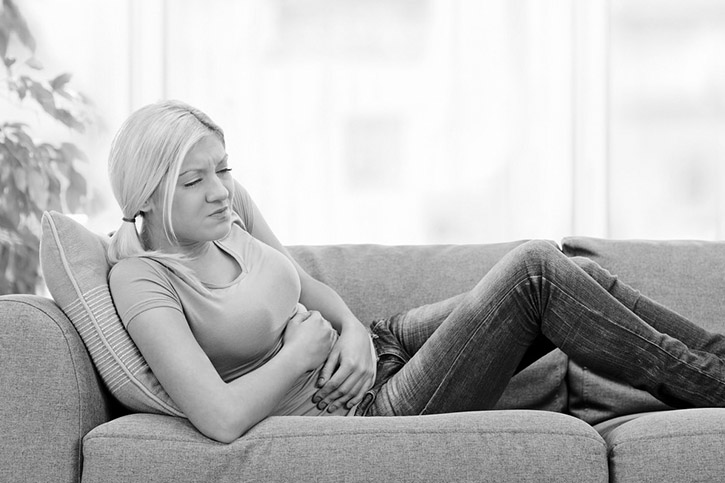Of all the conditions we have covered so far, vulvodynia is perhaps the most peculiar. Vulvodynia is defined as condition where there there is pain, burning, rawness or other discomfort in the vulva, but where no underlying cause can be found. This may be ongoing for months, or even years.

Vulvodynia is a peculiar condition, mainly because it is defined by not having an underlying cause. Many women do not seek treatment because of this. Don’t let this be you! There are options avaliable.
The vulva is the outer part of the vagina, and this discomfort may make it hard to sit for long periods of time, insert tampons, or have sex. However, because the symptoms may be relatively mild or inexplicable, many women do not seek treatment. And because there is no underlying cause, many that do do not receive a diagnosis. Therefore many women find it hard to discuss.
Don’t let this be you! If you have vulvodynia, there are treatment options available to help manage symptoms that can be quite effective.
What Causes Vulvodynia?
As we said, doctors do not know what causes vulvodynia. It is thought that it may have something to do with the nerve endings in the vulva, which may be hypersensitive or damaged, causing easy irritation.
Other possible contributing factors include:
• Allergies
• Past vaginal infections
• Childbirth
• Genetic factors
• Past injury or trauma
• Chronic thrush
• Weakness in the pelvic floor
• Hormonal changes
The Types of Vulvodynia
There are two main subtypes of vulvodynia, localised or general:
• Localised vulvodynia is where symptoms present in one specific area (usually the vestibule or clitirous), which may be triggered by touch, sitting for extended periods of time, sexual intercourse or anything else that places pressure on the vulva.
• Generalised vulvodynia is where symptoms may occur anywhere in the vulva at any time, seemingly without cause.
In some cases, woman may experience both localised and generalised symptoms. This is known as mixed pattern vulvodynia.
Symptoms and Complications of Vulvodynia
Symptoms of vulvodynia differ between women. They may arise suddenly and then last months or years with different levels of severity.
• Aching pain, soreness, tenderness, or pain to the touch
• Burning
• Itching
• General discomfort
• Painful intercourse (dyspareunia)
These symptoms may present themselves randomly, or during some kind of activity that you may come to notice. Prolonged sitting, bike riding, walking, jogging or running, inserting a tampon, or intercourse may all trigger symptoms.
Vulvodynia can be extremely frustrating and have a huge impact on a your physical and emotional wellbeing. Complications include:
• Decreased sex drive or anxiety about intercourse
• Social anxiety and depression
• Issues with sleep
• Decreased motivation to exercise
• Relationship issues
Diagnosis and Treatment of Vulvodynia
Diagnosing vulvodynia is a matter of ruling out other possible causes of symptoms, seeing as they are quite similar to a number of gynaecological conditions and infections. This may include a pelvic exam, blood tests or genital swab.
While there is no cure for vulvodynia, there are ways to manage symptoms. It is important to seek help if you have the condition. These can be very effective and can help control pain and improve physical and emotional wellbeing as a result.
You can talk to your gynecologist about a treatment plan, which will differ between women. It’s about what works best for you. There are medications and antibiotics that can be taken to control symptoms. Biofeedback therapy and pelvic floor therapy can be effective. Nerve blocks and surgery are also options.
It may take some time before you find a remedy or combination of remedies that suits you. The important thing is that you discuss your symptoms and experiences with your healthcare provider, and keep track of what works for you and what doesn’t, and work towards a better quality of life.
If you have any questions about vulvodynia, or are experiencing any symptoms and would like to book an appointment, please don’t hesitate to give us a call.
Dr Brown is one of the most trusted gynecologists in Sydney and will strive to give you compassionate and comprehensive care in every way possible.
